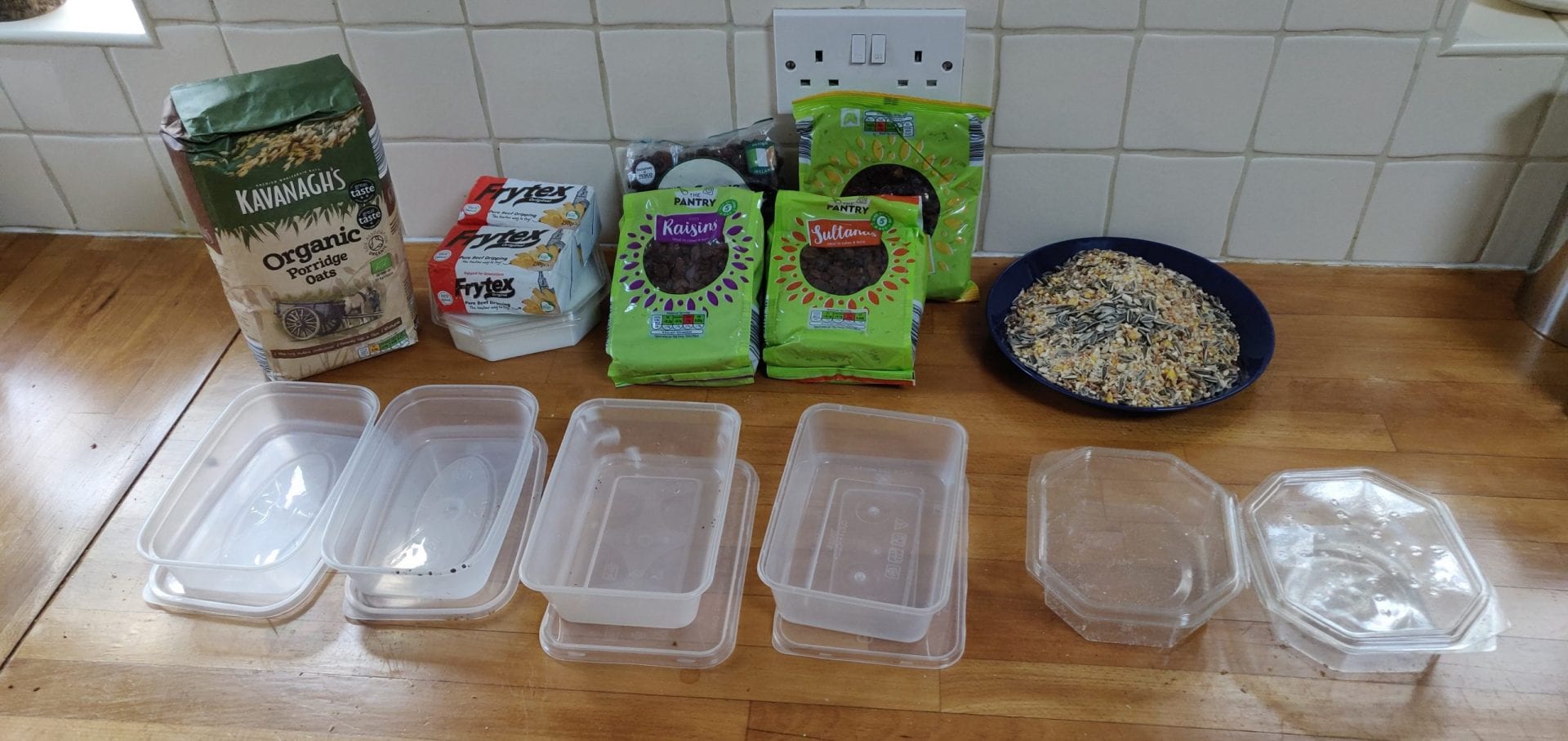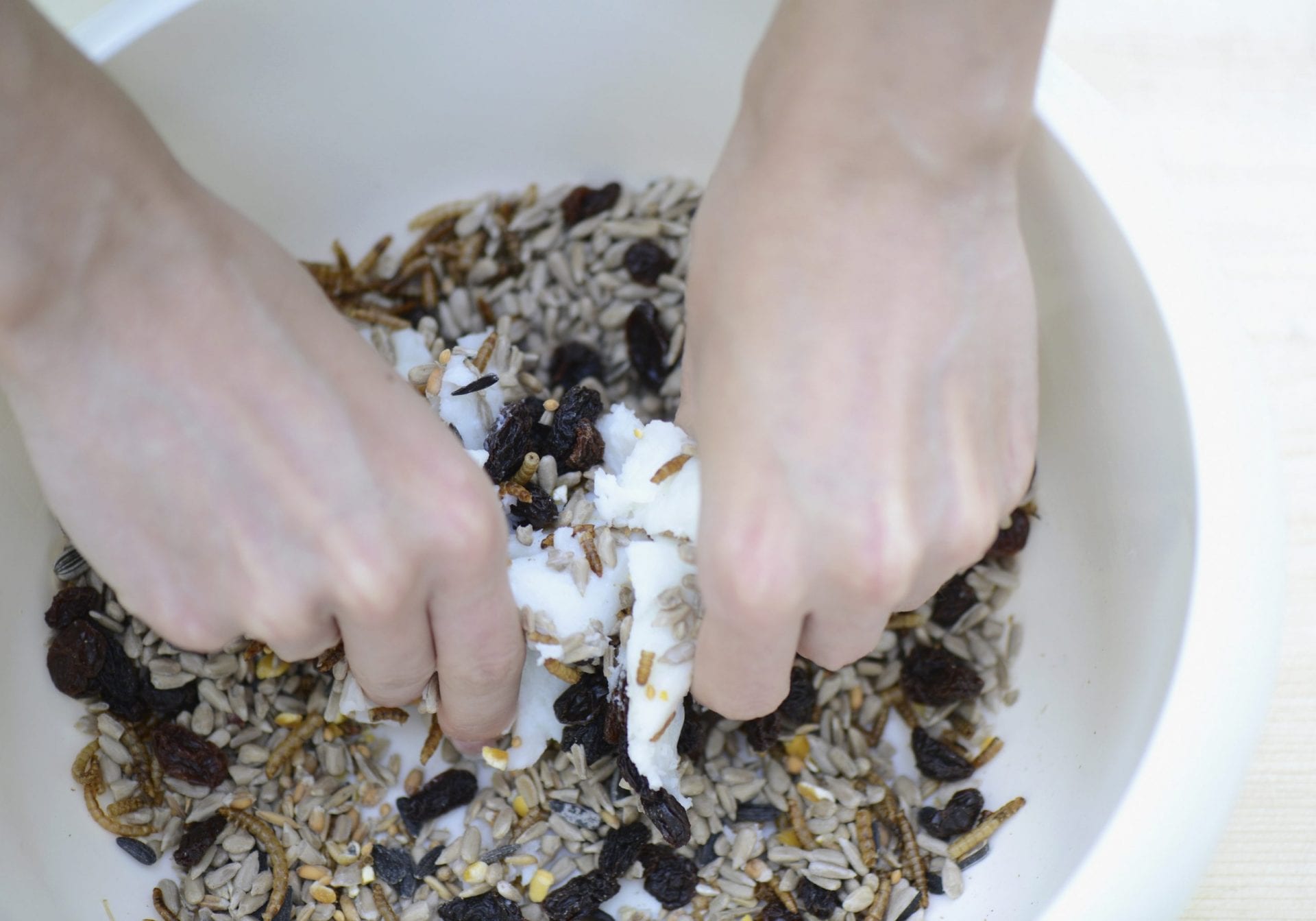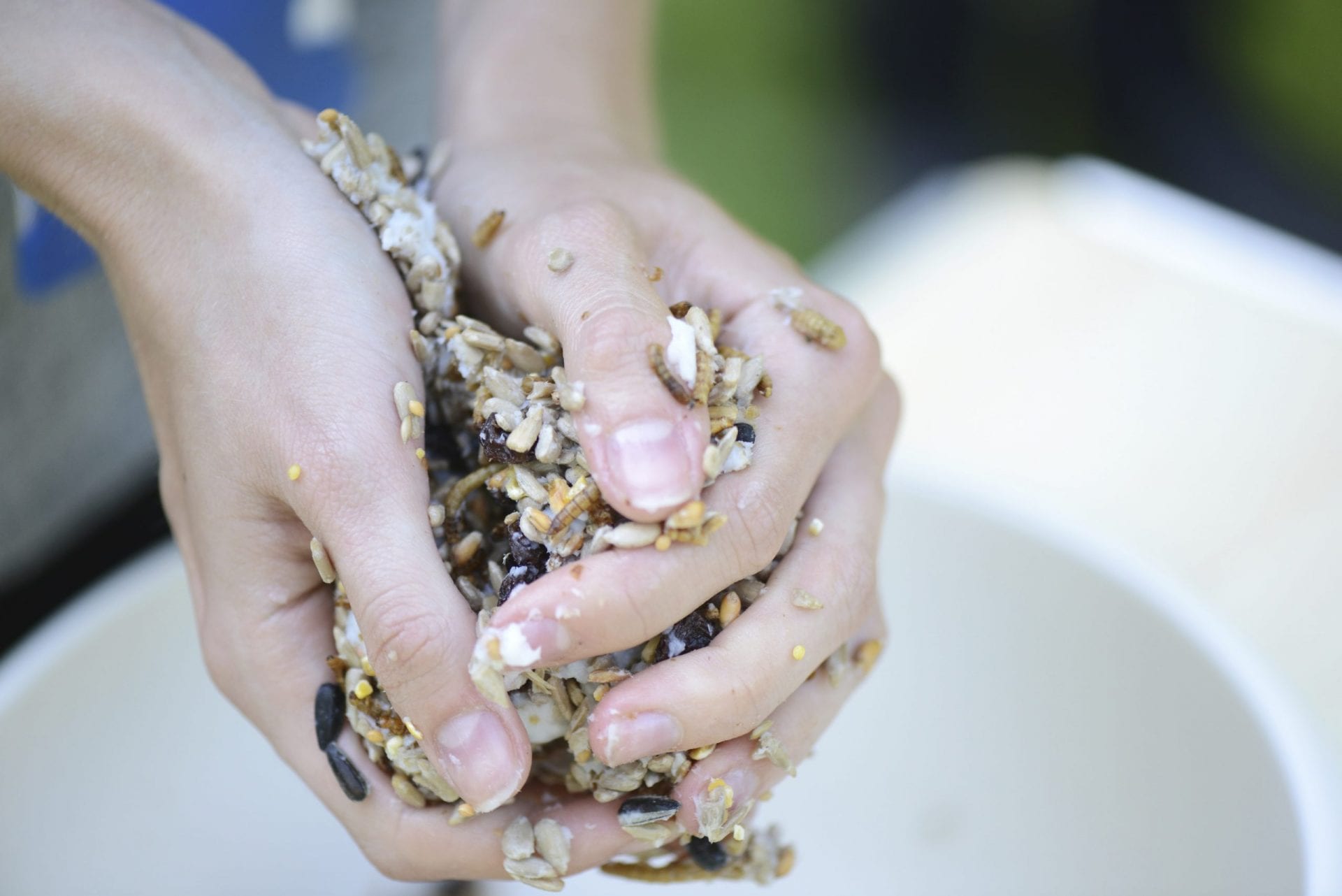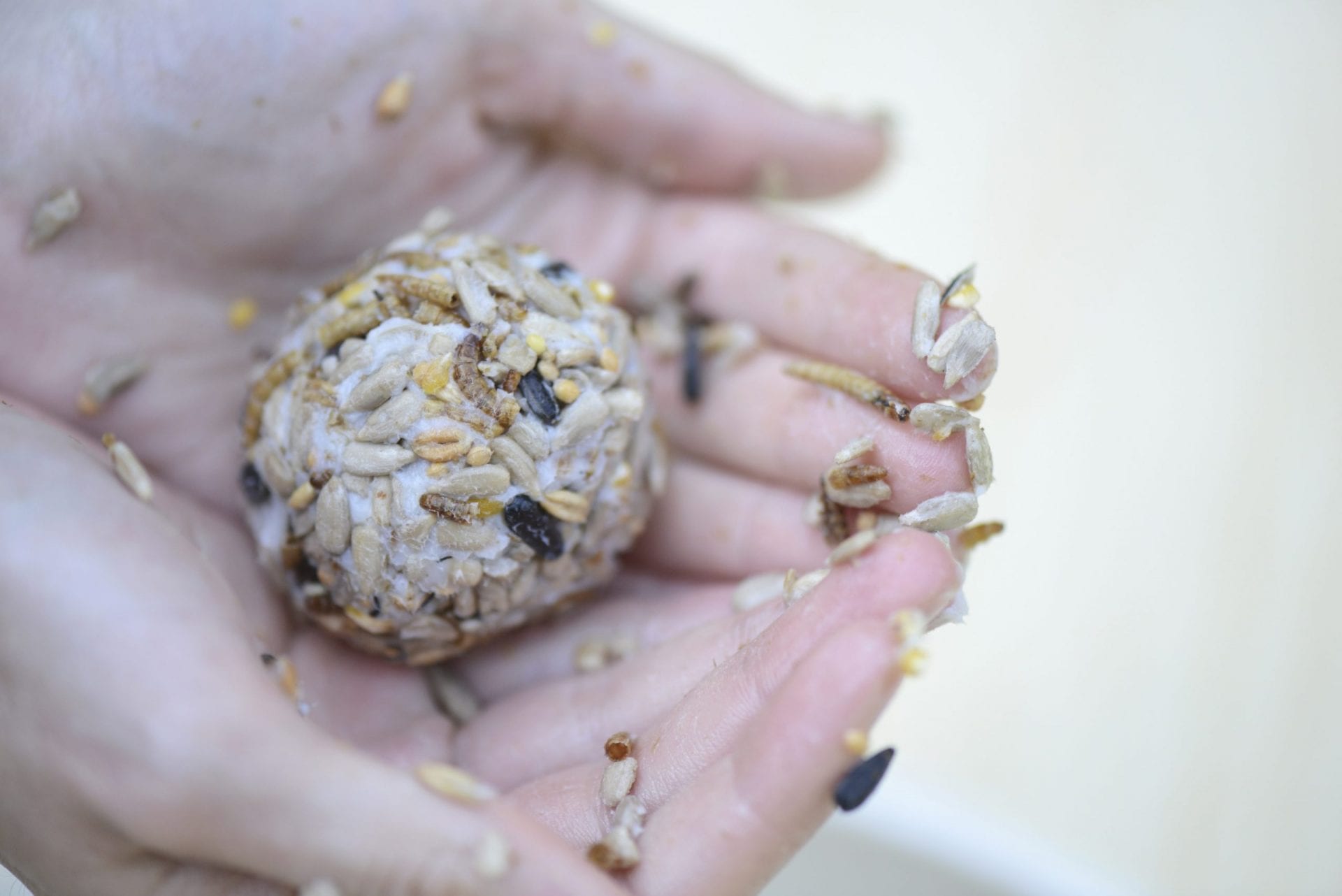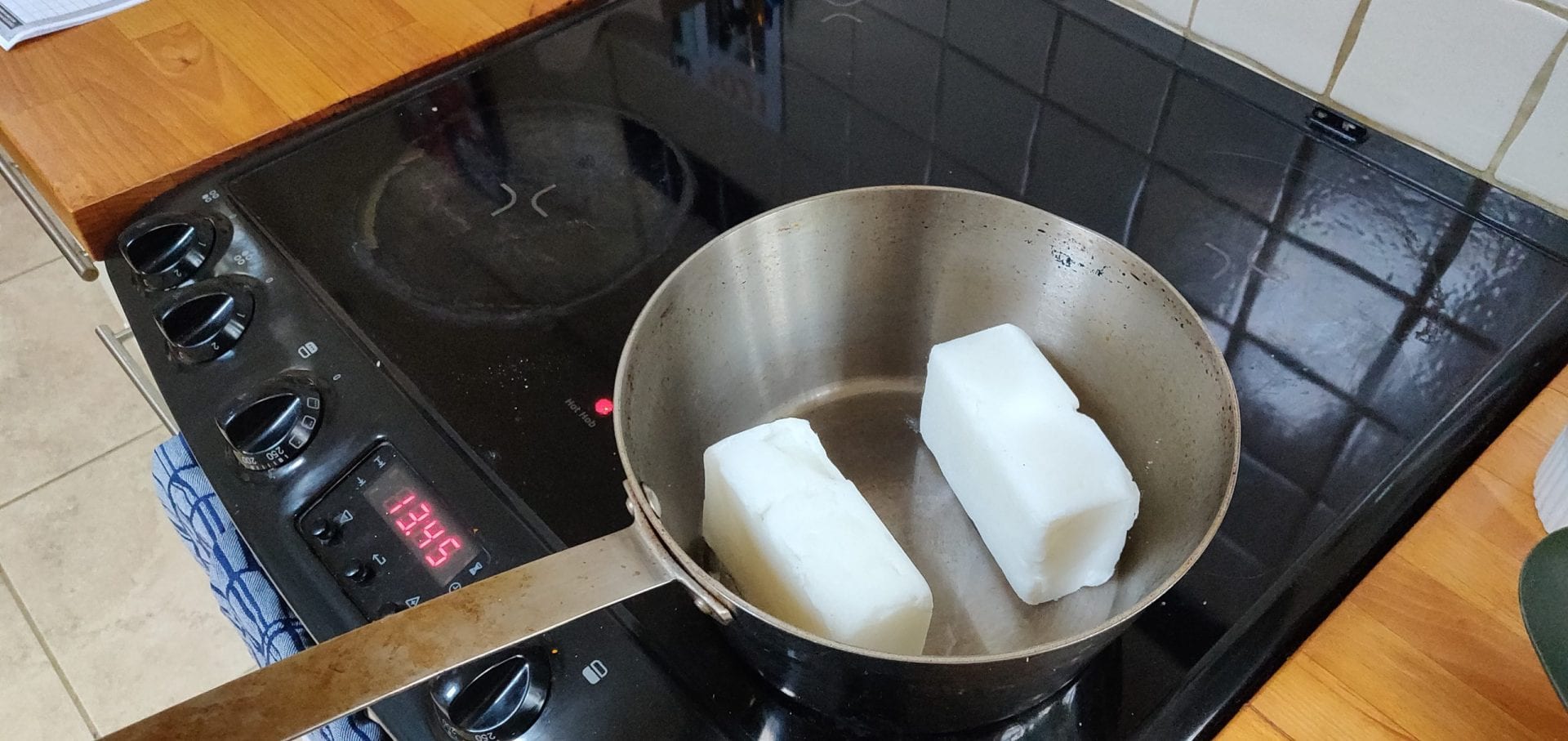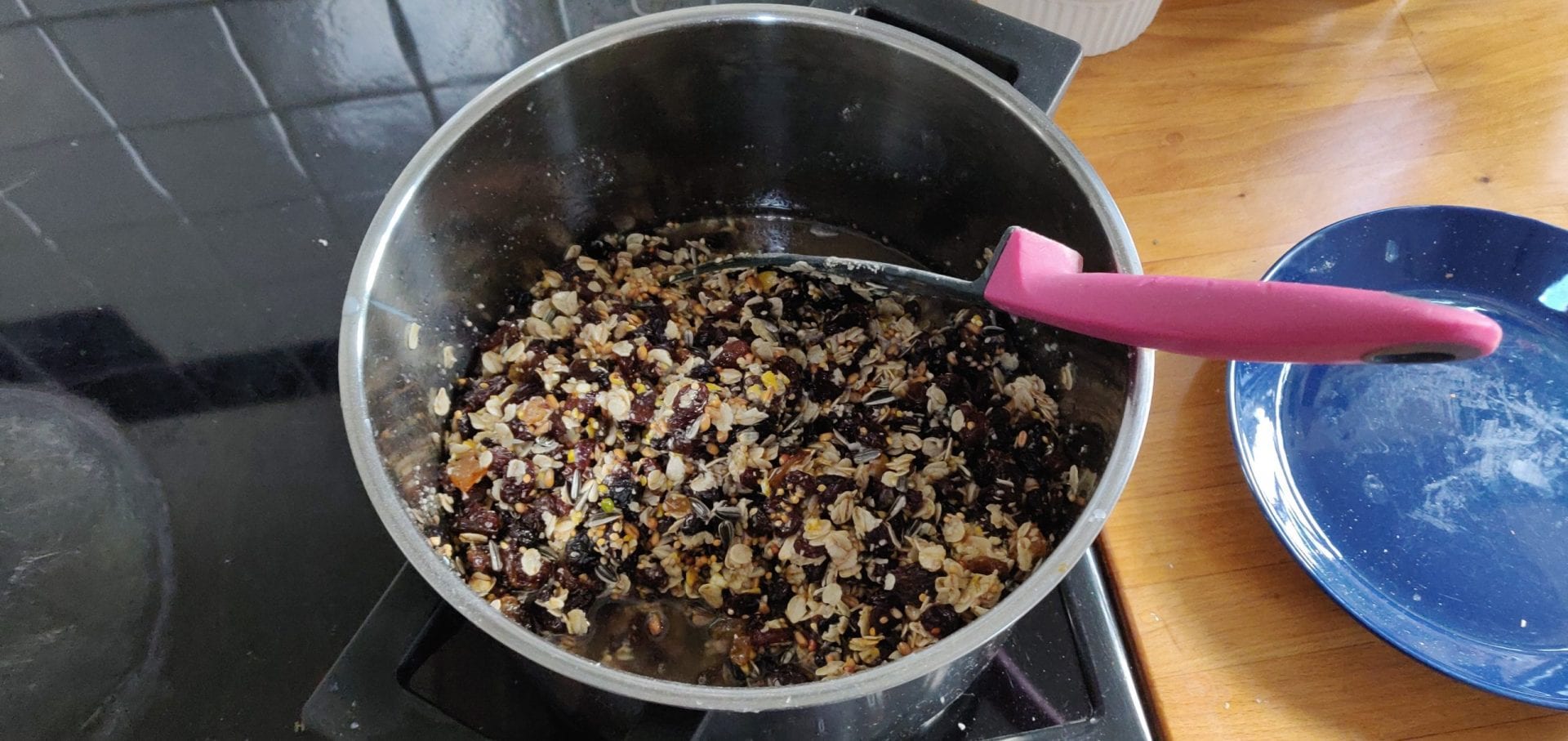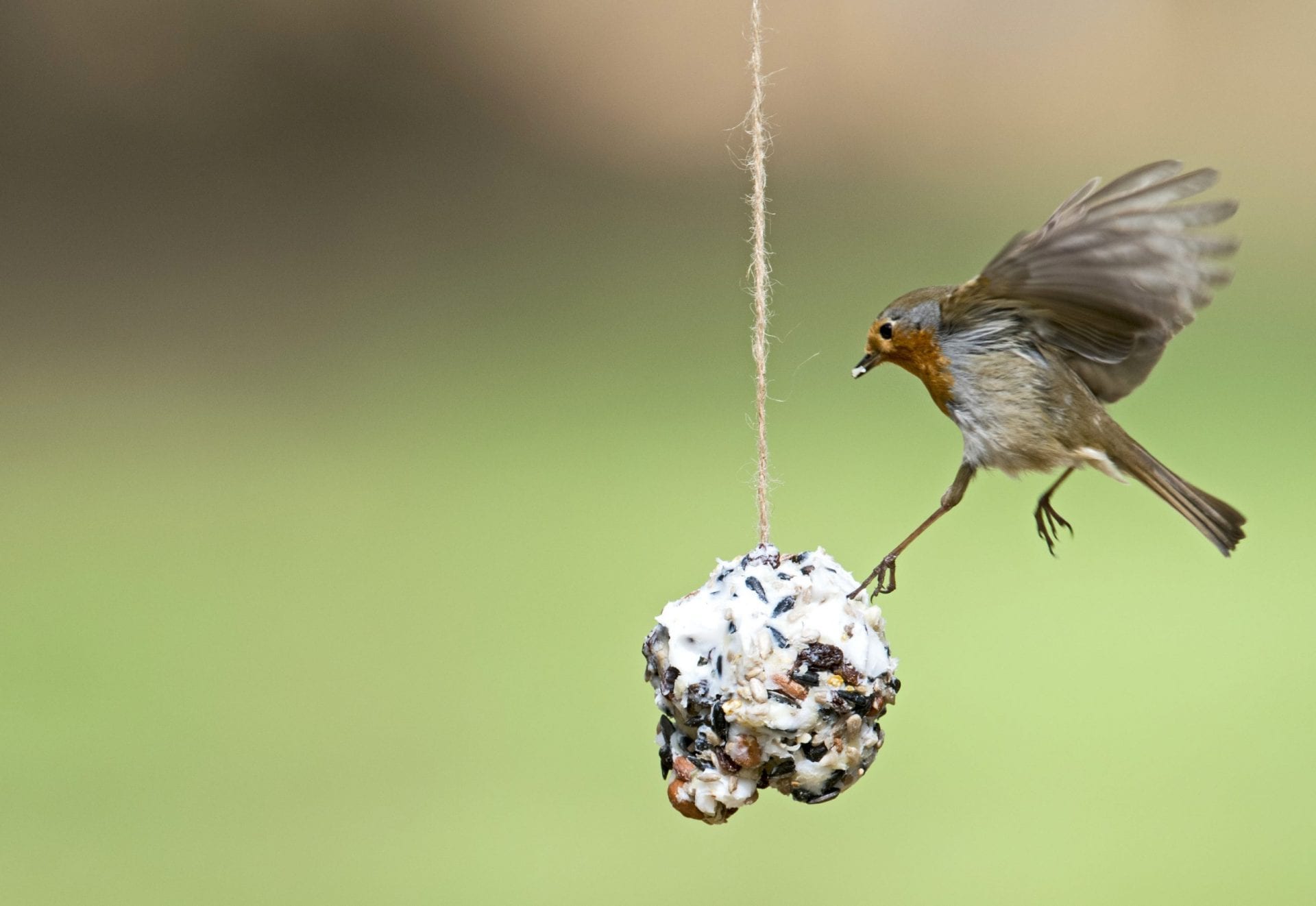The Shopping List
The core ingredient will be lard, suet or beef dripping. Your local butcher might have these, but otherwise most supermarkets have it in the fridge aisle near the butter. Look for small blocks of ‘Frytex’ beef dripping, or a supermarket own-brand equivalent. Note that butter, margarine, coconut oil, peanut butter etc. are NOT suitable for birds. They don’t provide the right saturated fats for the birds, and also they don’t freeze as solid as lard/beef dripping, meaning grease and oil can get on birds feathers, which destroys their heat-insulating capabilities and can be lethal as a result. So, don’t risk it! For the same reason avoid using cooking fat from cooking turkey or chicken.
What you add next is up to you and there’s no hard or fast rule as to what exactly has to go in. You can buy raisins and sultanas, porridge oats, mixed seed, peanuts, grated cheese, breadcrumbs etc. in whatever quantities you like. Some of these are ingredients you might have in the cupboard already. With regards peanuts, you can chop or blitz them in a food processor before adding. Roughly speaking you want two parts dry ingredients to one part ‘wet’ (i.e. lard). Do not use anything with salt in it as this will make your birds sick! And similarly you can’t use anything with mould on it.
Then, you’ll need something to put them in. It’s worth checking your recycling bin for this! Old plastic takeaway containers work really well, as do yoghurt pots and similar plastic containers, or old coconut shells. If you don’t already have a cage feeder suitable to hold your fatball/block, then you might want to pierce a hole in the bottom and knot some string through it to be able to hang it once it’s ready.
Lastly, you’ll need either a large bowl (method 1 below) or a saucepan and spoon (method 2).

